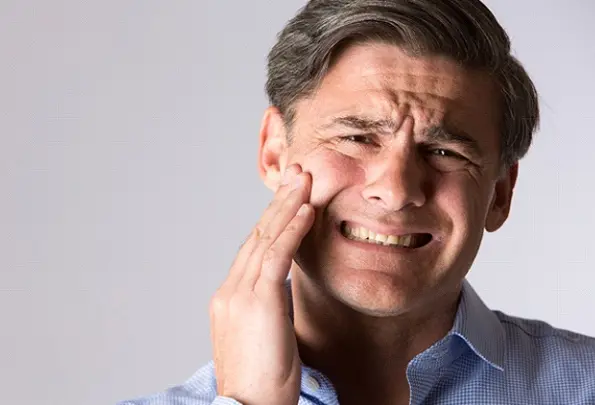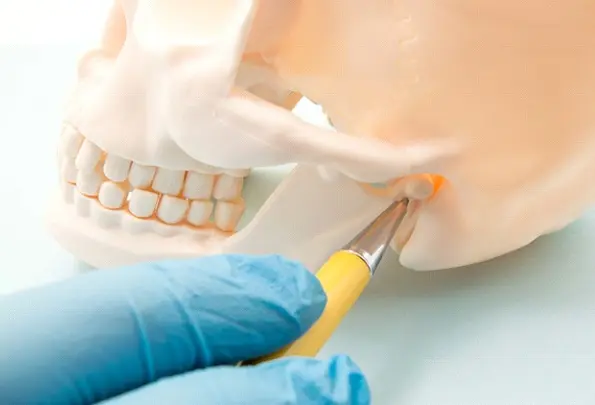MAKE JAW PAIN AND HEADACHES DISAPPEAR

Do you suffer from frequent migraines or often wake up with severe jaw pain? If so, you may have temporomandibular joint (TMJ) disorder. The pain and discomfort caused by problems with this complex jaw joint can negatively impact your quality of life. Fortunately, Dr. Jason Kaopua can relieve your pain with effective TMJ treatment in Everett! Keep reading to learn more about the causes, signs, and ways to overcome this common condition.
WHAT IS TMJ DISORDER?
To understand TMJ disorder, you first need to know about the temporomandibular joints. These unique joints are located on each side of your head where your jaw connects to your upper skull. Made up of ligaments, rounded bone, and a disc-like structure of cartilage, the temporomandibular joints and jaw muscles enable you to open and close your mouth.
TMJ disorder, also referred to as TMD, is an umbrella term for any problem that causes jaw pain and prevents this complex joint from working properly. According to the National Institutes of Health, over 10 million Americans are affected by TMJ disorder. Women are roughly twice as likely as men to experience TMJ issues.


WHAT CAUSES TMJ DISORDER?
Pinpointing the exact cause of TMJ disorder can be difficult, as there are often many factors at play. Your persistent jaw pain may be due to any of the following:
- Stress
- Grinding teeth
- Underbite, overbite, or crossbite
- Jaw dislocation or injury
- Arthritis
- Infection
- Poor posture
SIGNS AND SYMPTOMS OF TMJ DISORDER
Patients suffering from TMJ disorder may experience any of the following symptoms:
- Radiating pain in the jaw, face or neck
- Difficulty opening or closing one’s mouth when biting, chewing or yawning
- Popping or clicking noises when opening one’s mouth
- Chronic headaches or migraines
- Dizziness and vision problems
- Ear pain or pressure

TMJ TREATMENT OPTIONS
There are several different ways to treat TMJ disorder. When you visit Albright Family Dental, Dr. Kaopua will carefully evaluate your mouth and develop a personalized treatment plan just for you. Depending on your unique circumstance, he may recommend the following:
- A combination of over-the-counter pain medication, applying heat or icepacks to the area, and special exercises designed to increase the mobility of the jaw joints can often help minor cases of TMD.
- Occlusal adjustments – Teeth that do not come together properly can prevent the TMJ from reaching its natural position. This can lead to tension in the jaw joints and cause TMJ disorder. During occlusal adjustments, Dr. Kaopua slightly reshapes a few teeth to prevent bite problems and allow the jaw muscles to relax.
- Occlusal splint – This is a type of therapeutic mouthpiece that gently shifts the jaw into a more natural position. Typically worn at night, an occlusal splint enables the jaw muscles to relax and heal themselves. Occlusal splints also help protect teeth from any nighttime grinding.
The best way to find out which TMJ treatment in Everett is right for you is to schedule a consultation with Dr. Kaopua. If you are ready to say goodbye to persistent jaw pain and get back to enjoying life, do not hesitate to give our office a call!
MAKE JAW PAIN AND HEADACHES DISAPPEAR

Do you suffer from frequent migraines or often wake up with severe jaw pain? If so, you may have temporomandibular joint (TMJ) disorder. The pain and discomfort caused by problems with this complex jaw joint can negatively impact your quality of life. Fortunately, Dr. Jason Kaopua can relieve your pain with effective TMJ treatment in Everett! Keep reading to learn more about the causes, signs, and ways to overcome this common condition.
WHAT IS TMJ DISORDER?

To understand TMJ disorder, you first need to know about the temporomandibular joints. These unique joints are located on each side of your head where your jaw connects to your upper skull. Made up of ligaments, rounded bone, and a disc-like structure of cartilage, the temporomandibular joints and jaw muscles enable you to open and close your mouth.
TMJ disorder, also referred to as TMD, is an umbrella term for any problem that causes jaw pain and prevents this complex joint from working properly. According to the National Institutes of Health, over 10 million Americans are affected by TMJ disorder. Women are roughly twice as likely as men to experience TMJ issues.
WHAT CAUSES TMJ DISORDER?

Pinpointing the exact cause of TMJ disorder can be difficult, as there are often many factors at play. Your persistent jaw pain may be due to any of the following:
- Stress
- Grinding teeth
- Underbite, overbite, or crossbite
- Jaw dislocation or injury
- Arthritis
- Infection
- Poor posture
SIGNS AND SYMPTOMS OF TMJ DISORDER

Patients suffering from TMJ disorder may experience any of the following symptoms:
- Radiating pain in the jaw, face or neck
- Difficulty opening or closing one’s mouth when biting, chewing or yawning
- Popping or clicking noises when opening one’s mouth
- Chronic headaches or migraines
- Dizziness and vision problems
- Ear pain or pressure
TMJ TREATMENT OPTIONS
There are several different ways to treat TMJ disorder. When you visit Albright Family Dental, Dr. Kaopua will carefully evaluate your mouth and develop a personalized treatment plan just for you. Depending on your unique circumstance, he may recommend the following:
- A combination of over-the-counter pain medication, applying heat or icepacks to the area, and special exercises designed to increase the mobility of the jaw joints can often help minor cases of TMD.
- Occlusal adjustments – Teeth that do not come together properly can prevent the TMJ from reaching its natural position. This can lead to tension in the jaw joints and cause TMJ disorder. During occlusal adjustments, Dr. Kaopua slightly reshapes a few teeth to prevent bite problems and allow the jaw muscles to relax.
- Occlusal splint – This is a type of therapeutic mouthpiece that gently shifts the jaw into a more natural position. Typically worn at night, an occlusal splint enables the jaw muscles to relax and heal themselves. Occlusal splints also help protect teeth from any nighttime grinding.
The best way to find out which TMJ treatment in Everett is right for you is to schedule a consultation with Dr. Kaopua. If you are ready to say goodbye to persistent jaw pain and get back to enjoying life, do not hesitate to give our office a call!